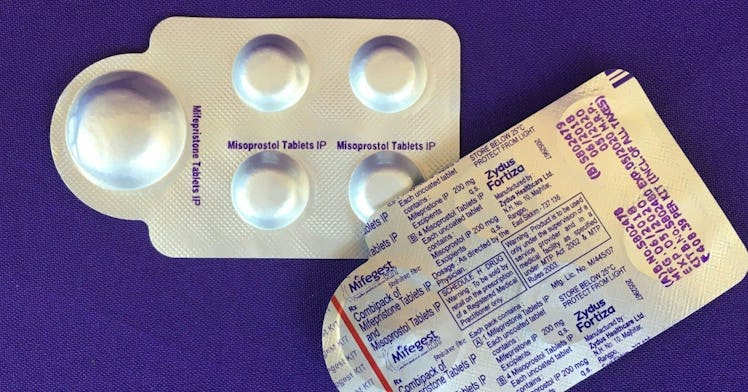South Dakota’s New Abortion Law Completely Ignores Science
Medication abortions are so safe that you don't even need an in-person doctor's visit to get one. In South Dakota, you may now need to go to three.

On Wednesday, South Dakota Governor Kristi Noem signed a law that would make the state one of the most difficult places to obtain medication abortion. The new law, which has not yet taken effect (it’s dependent on a federal court case’s outcome), would require those seeking a pharmaceutical abortion to visit a physician three times, even though physician visits
are not medically necessarynot required by the Food and Drug Administration (FDA) to obtain a prescription for the medication.The law would requireback Class 6 felonyCNN.Further complicating matters is that pharmaceutical abortion is only available prior to the 11th week of pregnancy. Many people do not realize they are pregnant until around the six to the eight-week point, meaning three physician visits are required in the approximately one-month span between detection and the medication’s gestational cut-off — an unreasonable requirement for most pregnant people to be able to meet, especially if, say, their doctor’s office is fully booked when they realize they are pregnant. South Dakota is the latest in a string of states attempting to limit access to abortion medications. In response to the COVID-19 pandemic, the FDA lifted physician visit requirements, allowed telehealth visits, and permitted abortion medications to be mailed to patients, a temporary measure that was made permanent in December. On the heels of the FDA change, lawmakers in 20 states quickly drafted bills that would limit availability and ease of access to the medications. Legislators in Georgia, Kentucky, Louisiana, Maryland, Minnesota, Missouri, Nebraska, Ohio, South Dakota, and Tennessee introduced bills that would ban mail receipt of the medications and require in-person pick-up at a medical facility. Residents of South Dakota would be required to take the medication in the presence of a medical professional.Iowa, Massachusetts, Minnesota, and Missouri lawmakers introduced bills that would revoke the ability for patients to seek telehealth consultations and require at least one in-person physician visit. And in Iowa, Massachusetts, Minnesota, and Missouri, lawmakers have proposed total bans on the use of abortion medications, which account for half of all abortions have been approved by the FDA for over 20 years, and are recommended by the American College of Obstetricians and Gynecologists.At present, 26 states are poised toban abortion outright if the landmark Roe vs. Wade decision is overturned this summer, as many experts believe it will be. This would dramatically limit family planning options for U.S. families and send countless people in search of dangerous black market abortions.Despite the current anti-choice political climate in many states, organizations are working to provide abortion medications to those who are unable to obtain them in their home states. Aid Access, an abortion advocacy group, mails abortion medications to all 50 states, ensuring that those who live in states with abortion bans have access to necessary medical treatment and family planning. Services such as the ones Aid Access provides also mean that people can keep medications on hand in case of future need in areas where abortion services have or are likely to become significantly more difficult, or even illegal, to obtain.
This article was originally published on